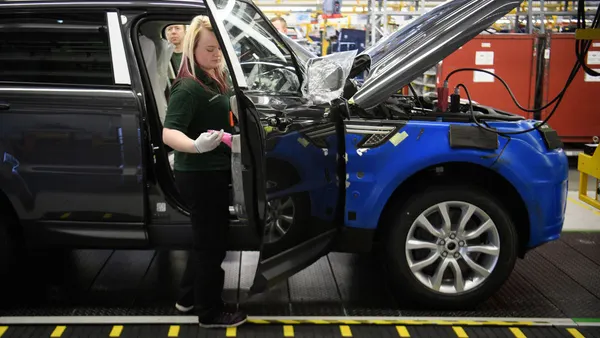Dive Brief:
- Global fish production reached a record high of 171 million tons in 2016, helping to meet an expected 20% surge in demand for the food product by 2030, according to a recent United Nations report.
- However, 35% of global catches are wasted, either as bycatch or discards, and overfishing is shifting the world's marine fish stocks, The State of World Fisheries and Aquaculture 2018 report found.
- The trend toward fully exploiting the world's waters, while boosting production, threatens global food security in the long-term, experts told The Guardian. Less than 10% of the world's fish stock were "underfished" in 2015. By contrast, more than 30% were overfished and just less than 60% were "fished to maximum."
Dive Insight:
I live in an area northeast of Boston that was founded over 400 years ago due to its proximity to the abundant cod fishing grounds of the North Atlantic. Gloucester, Massachusetts, was the longtime home to a fleet thousands of fishing boats that supported immigrant families from England, Canada, Italy, Portugal and beyond.
Millions of pounds of cod, mackerel, redfish and other species were landed and shipped around the world. Shore-side business supported the fishing industry, from lumpers who unloaded the catch, to processors who cut up the fish, to the transport companies who moved the fish to the chandlery who stock the boats with food and supplies. It was the foundation of the regional economy for centuries. Cod ruled.
And then the cod went away.
Some call it overfishing, others blame climate change, and still others deny there is a problem at all, disputing the scientific evidence that the offshore cod population have substantially declined during the past couple of decades. The National Oceanic and Atmospheric Administration (NOAA) maintain a regional science and fisheries office in Gloucester that has had a boisterous relationship with the fishing community. It is a battle of science versus long-term generational knowledge of the fishing grounds. Science is winning.
The cod have not come back.
The fishing fleet is down to hundreds of boats, fishing these days for alternate species such as haddock, lobster, mackerel and other still abundant varieties, but cod was and continues to be the foundational fish. NOAA restricts access to certain fishing grounds in the hope that the fish stocks will increase. The fishermen say that their families and businesses are being hurt due to government overreach. At times there is a truce and NOAA scientists work with the fishermen to reduce bycatch, increase the use of technology and target other species. It is a fragile peace.
Economics development agencies are working on campaigns to sell more plentiful species, targeting the locavore movement. There has been some success in promoting "deck to table" fish, which allows for a bit of a higher selling price for the fisherman and some increased demand for alternatives to cod. But hundreds of boats are gone from the fleet and the waterfront reflects fewer support businesses.
Is fish farming the answer?
The waters around Gloucester do not easily support fish farming, yet there is some movement on kelp farms and mussels. While some of the barriers are based in topography, geology and economics, others are more politically oriented in a NIMBY sort of way. Others are waiting for the cod to return while others say they have not gone anywhere. Oyster farming is popular and successful in nearby Cape Cod and those bivalves are shipped around the world. So aquaculture, managed properly, works.
Those working in the food supply chain have the responsibility, and leverage, to offset issues in aquaculture such as overproduction, waste and spent resources. This is now a sophisticated business that demands the proper management. No resource is inexhaustible, a reality that Gloucester has sadly come to recognize.












